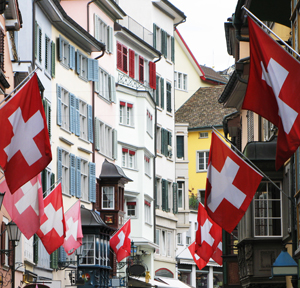Banking Crisis
Swiss Politicians Renew Calls To Break Up Country's Two Biggest Banks

Political parties in Switzerland have renewed attempts to split the country’s two biggest banks into separate entities and thereby prevent a repeat of “too-big-to-fail” bailouts that saw UBS rescued by the taxpayer amid the 2008 financial crisis, media report said.
The right-of-centre Swiss People's Party (SVP) and leftist
parties have called to separate investment banking from what are
called “systemically relevant activities” – such as retail
banking, reports from Tribune de Genève and
Reuters said. The two largest banks in the country are
UBS and Credit Suisse]/tag]; the
former received Swiss state aid after suffering massive
credit-related losses.
"A bank should only be as big that it can be allowed to fail in
an emergency, without the state intervening," SVP lawmaker
Caspar Baader was quoted as saying.
Since financial markets crashed in 2008, with several banks
failing – such as Lehman Brothers – or being bailed out, as in
the case of UBS, there has been widespread debate on whether
large banks should be broken up so they no longer pose systemic
threats to the financial system and the taxpayer. Also, it is
argued, if banks reach a certain size, taxpayers face the ugly
reality of bailing them out to prevent even worse problems –
but the existence of bailouts also encourages foolish bank
behaviour in the first place. However, splits to bank functions
is not necessarily a cure: a number of banks and financial
institutions which hit trouble in the crisis, such as the UK’s
Northern Rock, did not engage in investment banking and some
that did emerged relatively unscathed.
SVP lawmakers had already joined with the left-wing Social
Democrats (SP) in 2009 over splitting up UBS and Credit Suisse.
Those efforts failed due to wrangles over details.
Since the crisis, both banks have significantly reduced their
investment banking exposures; in UBS’s case, it stresses how
its wealth management operation is the flagship business of the
bank.
